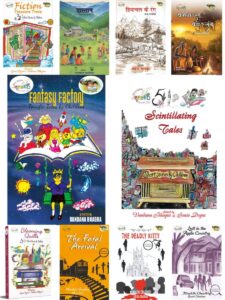Tanupriya Bhardwaj’s directorial debut with O. Henry’s The Gift of the Magi, staged at the Gaiety Theatre, turned into an unfortunate distortion of a cherished classic. Celebrated for its emotive complexity and succinctness, the original story’s charm was lost in this overly ambitious and poorly executed adaptation.

 From the outset, the production suffered from glaring technical flaws. Makeup and hair extensions were distractingly obvious, while the division of the stage into two parts failed to establish an engaging or immersive setting. The overuse of fadeouts further disrupted the storytelling rhythm, leaving the audience disconnected and disinterested.
From the outset, the production suffered from glaring technical flaws. Makeup and hair extensions were distractingly obvious, while the division of the stage into two parts failed to establish an engaging or immersive setting. The overuse of fadeouts further disrupted the storytelling rhythm, leaving the audience disconnected and disinterested.
 The adaptation struggled to establish the emotional core of the narrative. The central elements of the story—the yearning for the shell comb and gold chain, symbols of sacrifice and love—were barely conveyed, robbing the tale of its poignancy. The audience was left searching for the emotional weight that defines O. Henry’s masterpiece. Perhaps the most egregious failure was the director’s inability to understand the symbolic and spiritual essence of the “Magi.”
The adaptation struggled to establish the emotional core of the narrative. The central elements of the story—the yearning for the shell comb and gold chain, symbols of sacrifice and love—were barely conveyed, robbing the tale of its poignancy. The audience was left searching for the emotional weight that defines O. Henry’s masterpiece. Perhaps the most egregious failure was the director’s inability to understand the symbolic and spiritual essence of the “Magi.”
The performances, though delivered by talented actors, were weighed down by a weak script and lackluster direction. Neeraj Prashar, as Eddie, and Sejal Rawat, as Anna, despite their skills, could not salvage the play or engage the audience. Vaishnavi, a promising actress, felt misplaced while Ansh Dev’s lines were barely audible, and the role of the young girl, Aradhya, was so underdeveloped that her presence seemed unnecessary.
The most pivotal scene—the moment Anna cuts her hair in a gesture of ultimate sacrifice—was handled with such heavy-handedness that it felt more comedic than touching. What should have been a moment of quiet heartbreak became an unintentional parody, leaving the audience cringing instead of moved.
The narrators too fell flat as instead of adding depth or cohesion, it further dragged the production into mediocrity. The play stretched far beyond its natural length, leaving the audience restless.
Bhardwaj’s directorial debut exposed the difficulties of adapting a classic without fully understanding its core message and structure. While it is commendable that this was her first attempt, a deeper commitment to learning the craft of theatre, adaptations, and direction is essential for future projects. What could have been a concise, emotionally stirring performance devolved into an overlong, lifeless production that did little justice to O. Henry’s timeless classic.




